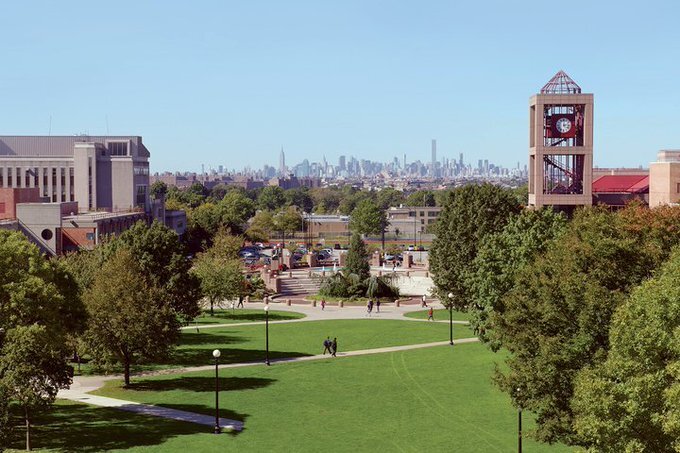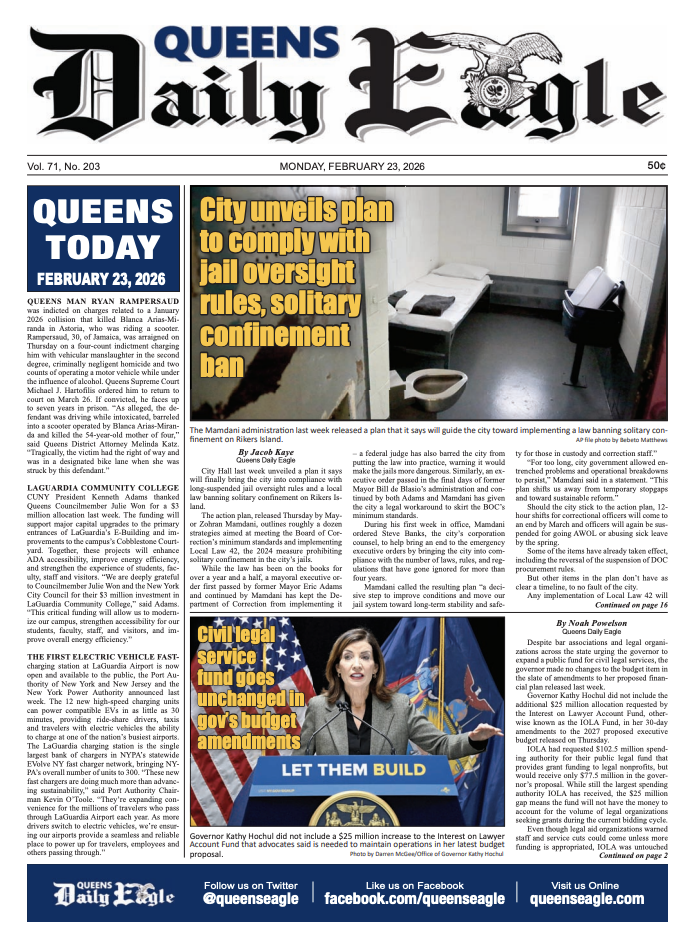Cutting us to the bone is no way to run a university system
/Queens College faces budget cuts. Photo courtesy of QC
By Karen Weingarten
In 1937, Queens College opened on land that once belonged to a boys’ reformatory school called the “Flushing Parental College.” Fiorello LaGuardia was mayor at the time and initially opposed the plan because it would be a “people’s college,” catering to the immigrants of Queens.
But when 110,000 people and 140 civic organizations petitioned him for the college’s creation, he changed his mind. Queens College was born on land owned by the Board of Education.
Since 1937 Queens College, which has been part of the City University of New York since 1961, has seen its ups and downs. And of course, any time the city — or state — faces an economic crisis, the university’s budget is placed on the chopping block.
Karen Weingarten is acting chair and associate professor of English at Queens College. Photo courtesy of Weingarten
There was the time in 1976 when the state decided that Hunter and City College, the two original city universities, should cut their budgets by 10 percent, but Brooklyn and Queens, the newer kids on the block, would face a 15 percent cut.
In response, the Provost and all five Academic Deans of Queens College quit.
In 1989, again, the university proposed raising tuition to deal with a budget crisis, even as students were told that class offerings would also be cut. Queens College students, along with their peers at the borough’s two community colleges — LaGuardia and Queensborough — organized a takeover of administrative buildings to protest the cuts.
One part-time faculty member, whose job was presumably on the line, is quoted with words that resonate eerily today: “How about taxing Donald Trump instead of raising tuition?”
For me, however, the most moving quotation in this reporting comes from the then-Queens College President, Shirley Strum Kenny, who tells her interviewer that she, along with all Queens College administrators and faculty, support the protests.
“We are at the bone,” she said, “There’s no more flesh.”
Now 30 years later, we’re once again in the very same place.
Queens College, along with all of CUNY, is facing deep cuts because of the coronavirus pandemic. And again, we’re told that even as a tuition increase is being considered, we should expect to see class sizes increase and part-time faculty lines eliminated. Yes, the city is facing an unprecedented economic and health crisis, and therefore, it should be expected that universities, too, will feel these repercussions.
But here’s the thing: there is nothing left to cut because after years of austerity — and cuts to CUNY’s budget under Governor Cuomo, who has never been a friend to CUNY — there is no more flesh, to use the words of Shirley Kenny.
More than 60 percent of classes at Queens College are taught by part-time faculty, who before the recent contract negotiation were making as little as $3,200 per class and will now make about $5,000—if they’re not first fired. And yet we’re told we may need to cut as many as 50% of those lines. Who will teach our classes then? Already Queens College students have bigger class sizes in courses like writing and math than their private school counterparts. In my department, English, part-time faculty teach more than 85% of our first-year writing courses.
Queens College has found itself in this position because after decades of cutting full-time lines to replace them only with part-time faculty, we have a labor force that is viewed as disposable by the university — and the state. And now, not only do beloved teachers face losing their jobs — and their health insurance in many cases — but we will become a university without enough classes. Two New York State Senators have proposed a bill that would tax the wealthy (those who earn more than 5 million dollars a year) for just two years to help fund public schools and CUNY and SUNY campuses during this crisis. Cuomo has historically opposed such measures.
I join my fellow CUNY faculty at Brooklyn College, who write to protest these cuts.
However, it’s time for all faculty, students, and administrators to publicly voice their dismay. Only if we all stand together, as we have at other historical junctures, against what is happening to our university will people start to take notice. We need Queens College — and CUNY—as a force for social mobility now more than ever.
Cutting us to the bone is no way to run a university.
Karen Weingarten is acting chair and associate professor of English at Queens College.





